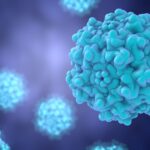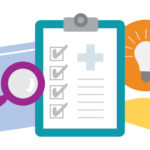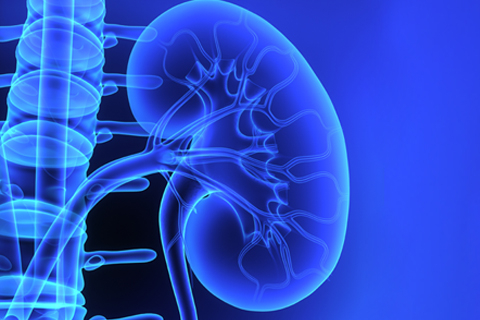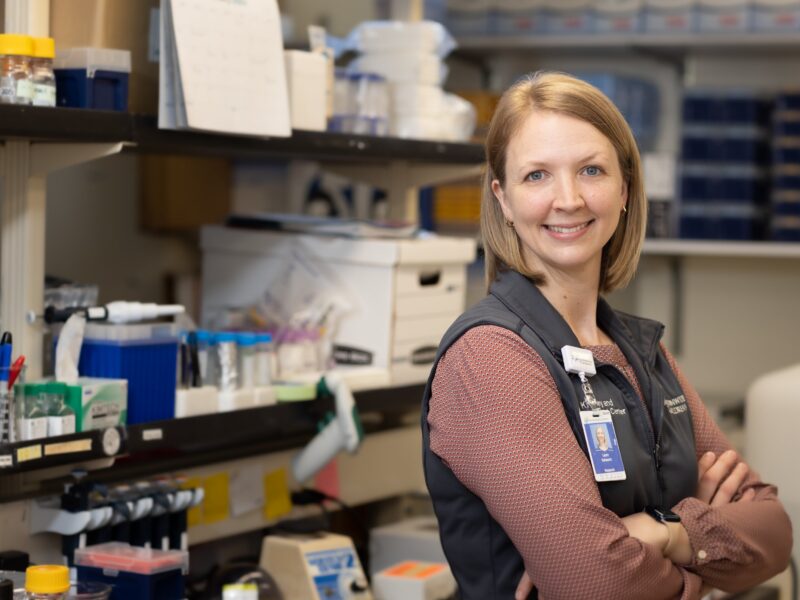The First 3 Years With PBS: Bryson’s Story
The First 3 Years With PBS: Bryson’s Story https://pediatricsnationwide.org/wp-content/uploads/2024/04/Purple-thread-2-crop.jpg 953 269 Wendy Margolin Wendy Margolin https://secure.gravatar.com/avatar/?s=96&d=mm&r=g
The first time Andrea Williams met her new baby was four days after his birth. Baby Bryson was born with the rare congenital disorder, prune belly syndrome (PBS), and was rushed to the Nationwide Children’s Hospital NICU immediately after birth. His enlarged belly meant he was delivered by C-section at 37 weeks, and it wasn’t until his mother was discharged that she could meet her new baby.
They’ve been inseparable ever since.
“I said ‘hi, Bryson,’ and he looked around because he knew my voice. I’m tearing up just thinking about it,” says Williams.
It was a bittersweet beginning for Bryson’s challenging first year.
Preparing for a New Baby With Prune Belly Syndrome
Williams first found out her baby likely had PBS at a 13-week ultrasound. Bryson had an enlarged bladder overly full of urine that maternal-fetal medicine physicians suspected was PBS. Williams underwent a vesicocentesis to extract fetal urine and decompress his massive bladder and tummy.
Throughout her pregnancy, Williams underwent bimonthly ultrasounds. She got a comprehensive genetic panel so that she and her doctors could prepare as much as possible for the uncertainties of her baby’s condition. The team closely watched her amniotic fluid levels because some mothers of babies with PBS run low. It turns out that Bryson had another anomaly, patent urachus, that caused some urine to leak at the site of his umbilicus during the pregnancy. This allowed him to empty urine, preventing the depletion of amniotic fluid.
Infancy and Toddlerhood With PBS
Children with PBS undergo multiple surgeries throughout childhood, especially in the first few years. Bryson’s first surgery was at only 13 days old to decrease his ureter reflux. He remained in the NICU for 22 days.
That first year, Bryson got repeated urinary tract infections that would send him back to the hospital. His ureters and renal pelvis were not draining urine properly into the bladder. Ultimately, the team at Nationwide Children’s performed pyelostomy and ureterstomy surgeries to drain urine, making more stomas with low pressure to decrease urinary tract infections and prevent kidney damage.
One of the biggest unexpected challenges for Williams was purely technical – how to keep her son dry and comfortable with multiple stomas draining urine. There was a period where Bryson needed a diaper in front for his leaking belly button, one in back for his right kidney stoma (pyelostomy), and a third one around his bottom. Williams was determined to keep her son comfortable and dry without looking bulky. She needed him to be able to move around like a typical toddler and for friends and family to hold him without worrying about leaks. She found a way to use abdominal binders to keep the diapers in place and allow her son to play and feel confident.
Through it all, there are moments when Williams forgets Bryson has PBS. When he’s busy playing, running or demanding to do everything himself, she can just enjoy being a first-time mom to an active toddler.
Bryson received physical therapy in his first year and hit his developmental milestones on time or within range. Undeveloped abdominal muscles can make those milestones challenging for some kids with PBS.
At 2.5 years old, Bryson underwent an 11-hour surgery co-led by Linda Baker, MD, and Daryl McLeod, MD, MPH, pediatric urologist at Nationwide Children’s, to close his urostomy and bring his undescended testicles down to his scrotum.
This spring, he’s expected to undergo abdominoplasty, which is an intense, multidisciplinary surgery with a long recovery. He’ll also get his flared rib repaired and pyelostomy closed.
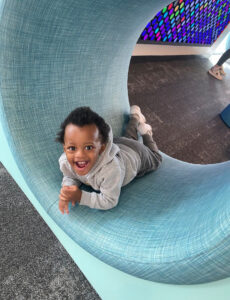 Williams can’t anticipate all the twists and turns ahead for her son with PBS. But she does know from experience that he’s a tough little warrior.
Williams can’t anticipate all the twists and turns ahead for her son with PBS. But she does know from experience that he’s a tough little warrior.
“I didn’t know what to expect before he was born and what he would need,” she says. “But he’s a fighter, and he doesn’t let a lot bother him.”
Williams doesn’t know anyone else in Columbus with PBS, but she’s connected with families online and attended the 2023 Prune Belly Syndrome Network conference, which was in Columbus for the first time this past summer. She is excited that future annual Prune Belly Syndrome Network conferences will continue in Columbus and hopes other PBS families will attend.
This article appeared in the Spring/Summer 2024 issue. Download the full issue.
About the author
- Wendy Margolinhttps://pediatricsnationwide.org/author/wendy-margolin/
- Wendy Margolinhttps://pediatricsnationwide.org/author/wendy-margolin/September 5, 2024
- Wendy Margolinhttps://pediatricsnationwide.org/author/wendy-margolin/September 23, 2024
- Wendy Margolinhttps://pediatricsnationwide.org/author/wendy-margolin/
- Posted In:
- Features
- Patient Story




